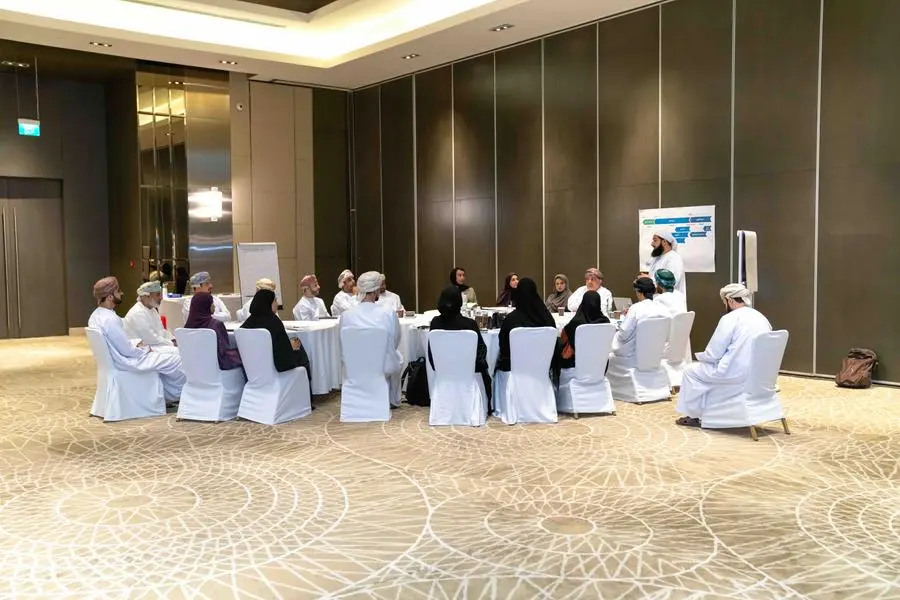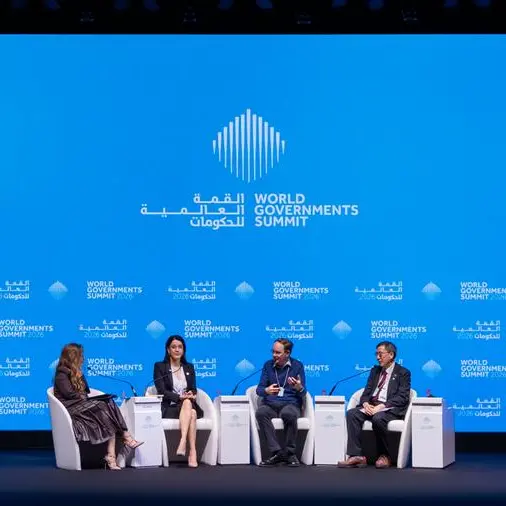PHOTO
Muscat, Oman: Taking proactive steps to ensure Oman’s preparedness to meet its ambitious green hydrogen production targets, Hydrom, the Sultanate’s green hydrogen orchestrator, organized a first of its kind green hydrogen ecosystem readiness workshop. Aiming to align national efforts for Oman’s green future, the workshop brought together key players from the energy, logistics and services sectors led by HE Eng. Salim Nasser Al Aufi, the Minister of Energy and Minerals and Chairman of Hydrom.
The high-level workshop saw government officials and senior stakeholders come together to present strategic development plans and discuss challenges, solutions and plans of action for achieving 2030 production targets and Vision 2040 targets. Set to become one of the largest exporters of low-carbon hydrogen in the region, Oman has laid out ambitious plans to develop the energy sector and shift to a hydrogen-centric economy for the future.
To date, Hydrom have awarded 8 plots of land totaling over 2,300km2 from a potential 50,000km2 that has been allocated for green hydrogen production. Awarded largely to energy consortiums comprising companies from Asia, Europe, Australia, and the Middle East, the contracts total more than $49 billion in investment commitments, highlighting significant investor confidence in Oman’s capacity to deliver.
“Our commitment to building a resilient and profitable energy sector for Oman extends to optimizing the full potential of the hydrogen value chain to bring employment, growth and institutional capacity across the board,” said Abdulaziz Al Shidhani, Managing Director of Hydrom. “We have moved quickly and efficiently since launching in October 2022 and we are not slowing down in our operations. Today’s workshop showed that the industry leaders are equally steadfast in their dedication to deliver affordable, secure and sustainable energy for a prosperous Omani economy.”
The tactical workshop provided an in-depth review of four key business streams essential for advancing Oman’s green hydrogen industry including contracting and service providers, national talent and human capital management, licensing, and logistics. In the first stream, participants assessed the capabilities of local engineering contractors, service providers, and construction companies, outlining plans to enhance their capacities while exploring potential international affiliations and partnerships.
For human capital management, the workshop aimed to lay out a roadmap for collaboration to build a workforce trained to meet the sector's needs. Attendees reviewed current workforce regulations related to expatriate capabilities to ensure Oman can attract and retain the right talent, while also identifying and addressing knowledge and training gaps within the local talent pool.
Digitalization was a cornerstone of the licensing discussion, as participants explored ways to streamline processes and enhance efficiency while in the logistics stream, the focus was on expanding ports, facilities, services, and infrastructure to support and enable green hydrogen players in the sector. The workshop concluded with a clear and aligned roadmap for economic growth, paving the way for a competitive, sustainable, and localized hydrogen industry.




















